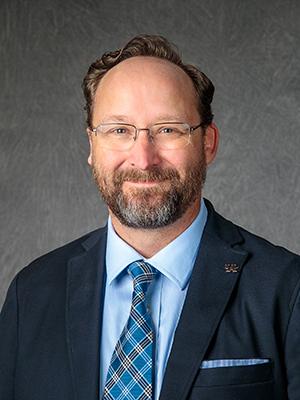About Us
The University of Kentucky Individual, Relational, and Financial Therapy (I-RAFT) Clinic is a community mental health facility serviced by therapy interns who are in their Family Sciences master's program at UK. Our interns are supervised weekly by their clinical supervisors who are licensed Marriage and Family therapists within UK's Family Sciences faculty. The I-RAFT Clinic has contributed its efforts to the community for more than 25 years. As a non-profit, the I-RAFT Clinic's first priority is to provide a place of genuine personal growth for therapy interns and their clients.
Meet the Supervisors
Nate Wood
Clinical Supervisor & I-RAFT Clinic Director Nate grew up in rural southern Idaho the youngest son of an entrepreneur and a renaissance woman. It was in this environment that his curiosity grew and he developed a love of learning, responsibility, integrity, and a deep respect for others regardless of background or station. These values and attributes have been a rudder and foundation in his life.
Nate grew up in rural southern Idaho the youngest son of an entrepreneur and a renaissance woman. It was in this environment that his curiosity grew and he developed a love of learning, responsibility, integrity, and a deep respect for others regardless of background or station. These values and attributes have been a rudder and foundation in his life.
Dr. Wood's curiosity led him to study engineering and then ultimately psychology and sociology at Utah State University. It was during these years that he started to be involved in basic behavioral research, intensive literature reviews, and research on marital interactions leading him to choose a path in marriage and family therapy. Dr. Wood continued his study of marriages through master and doctoral degrees in Marriage and Family Therapy at Brigham Young University which he returned to as an adjunct faculty member.
Dr. Wood has a love for variety in his personal and professional life. He thrives when he is able to practice therapy, supervise and teach students, and engage in scholarly research. His therapy work includes extensive experience with marriages, adult survivors of childhood abuse, domestic violence, divorce adjustment, and residential treatment of severe eating disorders. He has also been active in the American Association for Marriage and Family Therapy being a legislative chair, president-elect, and president of the Utah Division for Marriage and Family Therapy.
Nate's greatest achievement is marrying his high-school sweetheart and spending time with their three kids playing in the woods, water, or wherever the adventure takes them. You may also find Nate hanging out at the golf course or fly-fishing (even in Kentucky). He is thrilled to be here at the University of Kentucky!
I make a distinction between being "therapeutic" and "performing therapy." When most beginning therapists, and seasoned professionals at times, think about therapy, they think of "performing therapy." They are thinking of theoretical models, designing an intervention, or coming up with the "right" or "perfect" thing to say to a client at the "right," or "perfect" moment. I attempt to share and teach as much theory and interventions as I can with young professionals so they can have tools and language that can give a different perspective on people, "problems," and the therapy process. That being said, theories and interventions are simply tools that may or may not be therapeutic to the person sitting in front you.
Who you are as a person, how you treat and think of others, and how you respond in meaningful relationships will often be what is actually therapeutic for another person and yourself. Being therapeutic means opening new understanding, a sense of safety, openness, and care for everyone in the room that brings about change. I believe that it is only in the context of warm, responsive, and safe relationships that anyone is able to experience a fulfilling life. It is in safe relationships that allow us to navigate the inevitable pains and fears of life. It is also in those same relationships that we have someone to share the inevitable joy and peace with.
The most amazing, exciting, and simultaneously painful times are when a young professional's, or client's journey takes them out of our offices. Hopefully, they are more prepared for their life and relationships then when we first met them. I am left with the realization that my life will never be the same for having been with those people. I wouldn't want it any other way.
